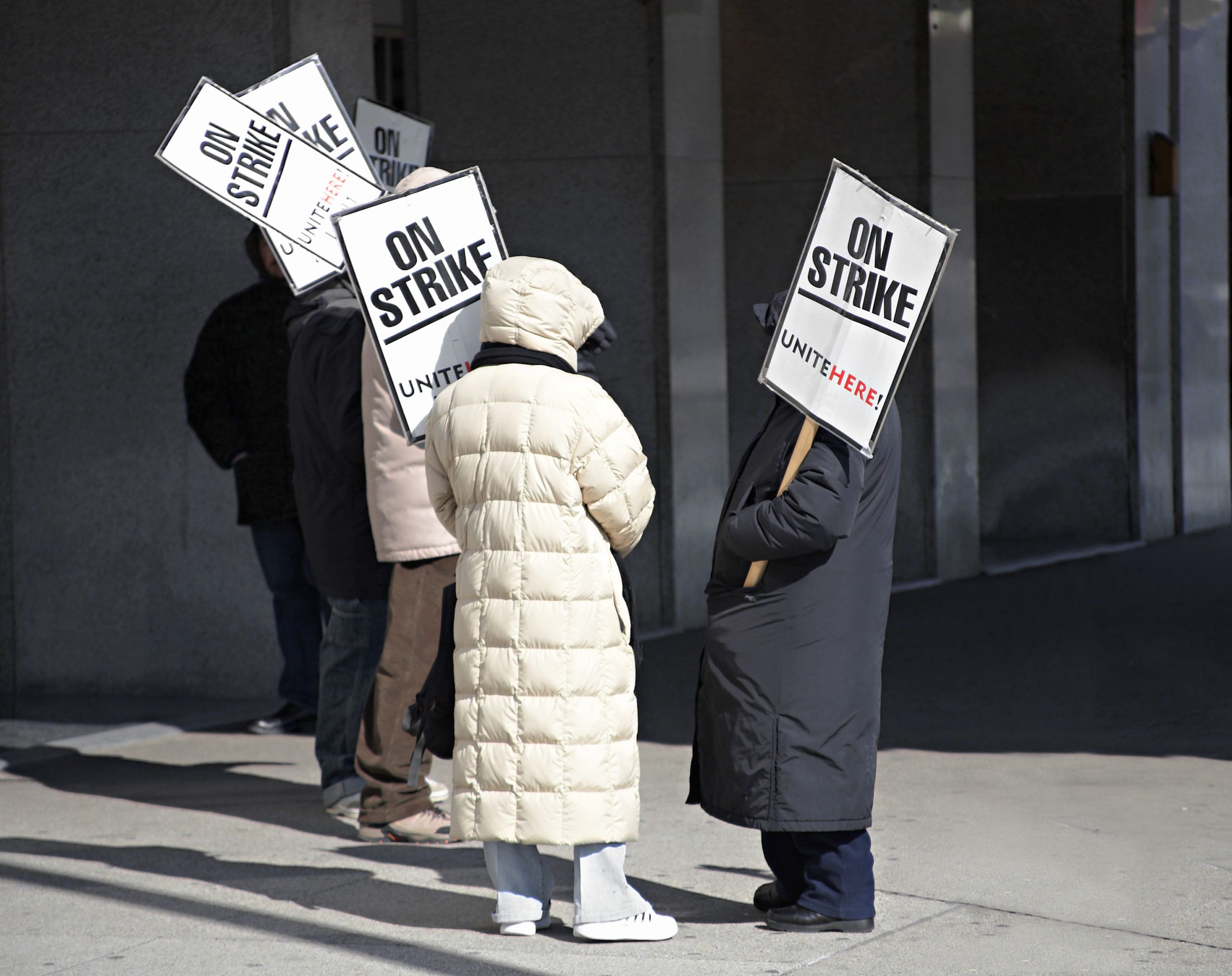Over 8,500 workers are on strike at over 80 Denver grocery stores. Why?
Over the past few weeks, thousands of grocery employees have left their markers, made signs, bundled up in the cold, and dedicated their days to fighting for their rights to justice and security. For the most part, they’re urging the public to support them by not choosing King Soopers or City Market (Kroger-owned stores) as their grocery store.
The strikes come after an ongoing contract negotiation between UFCW 7 and Kroger – the union rejected the company’s latest offer. The root of the issue in Colorado lies in whether the company can provide living wages and more rewarding career paths for its workers.
The result of widespread economic hardship
A new report commissioned by UFCW locals spotlights some alarming facts about the Kroger workforce: Over three-fourths of Kroger workers are food insecure (over seven times the national average). Three-fourths of Kroger workers also reported ongoing depression and anxiety. Eighty-five percent of Kroger workers who are single parents cannot afford to provide nutritious food for their kids.
These statistics are all compounded by the ongoing pandemic. Over two-thirds of workers had heated customer interactions during the COVID-19 pandemic, and one-quarter of workers were threatened with violence.
The report makes some suggestions for Kroger that could provide more justice and equality to workers, including increasing the minimum pay, providing immediate housing assistance for workers facing homelessness, providing more grocery discounts for workers, and more.
4 frequently asked questions about strikes
The strikes have raised the critical question of what legally counts as a strike, and what are employee rights when organizing or participating in one? Here are four answers to common questions:
1. Difference between a walkout and a strike.
A walkout is considered a form of a strike, where employees literally walk out or stop showing up for work for a certain period or until their demands are met. The legal definition of a strike is an organized and intentional stoppage of work by employees to make an employer comply with their demands.
2. Can you get fired for going on strike?
Technically no, unless the strike is not protected under the National Labor Relations Act of 1935 (NLRA). But employers have the right to replace a striking employee by hiring a new one. Getting replaced and getting fired are essentially the same thing, yes, but legally they are technically different. The Supreme Court rules that employers have the right to hire replacements to keep their business running during the strike. After the strike is over, replacements have the right to keep their job.
3. Are all strikes legal?
There are rules you must follow to be legally protected when going on strike. For example, workers are not protected under the NLRA when they perform a “sit-in strike” where they intentionally slow their work pace or an “intermittent strike” when they strike on and off for a period of time. Employees can get fired for these types of strikes.
4. Are you legally allowed to go on strike?
If you work in the private sector, yes. For government workers, it depends. For example, some of the most famous unprotected strikes have been teacher strikes because it’s technically illegal for public school teachers to strike in some states. Government employees at all levels do not have the right to strike in most states, and neither do some transportation workers, agriculture laborers, or public employees.
Talk to a lawyer regarding your questions on your rights to go on strike.
There are a lot of legal nuances around strikes, and it’s essential to your protection to get a consultation from your lawyer before deciding to participate in one. Make sure you secure your legal rights when fighting for justice and equality.
Pre-Paid Legal Services, Inc. (“PPLSI”) provides access to legal services offered by a network of provider law firms to PPLSI members through membership-based participation. Neither PPLSI nor its officers, employees or sales associates directly or indirectly provide legal services, representation, or advice. The information available in this blog is meant to provide general information and is not intended to provide legal advice, render an opinion, or provide any specific recommendations. The blog post is not a substitute for competent legal counsel from a licensed professional lawyer in the state or province where your legal issues exist and the reader is strongly encouraged to seek legal counsel for your specific legal matter. Information contained in the blog may be provided by authors who could be a third-party paid contributor. All information by authors is accepted in good faith, however, PPLSI makes no representation or warranty of any kind, express or implied, regarding the accuracy, adequacy, validity, reliability, availability, or completeness of such information.




